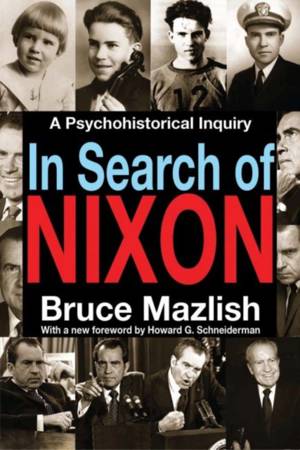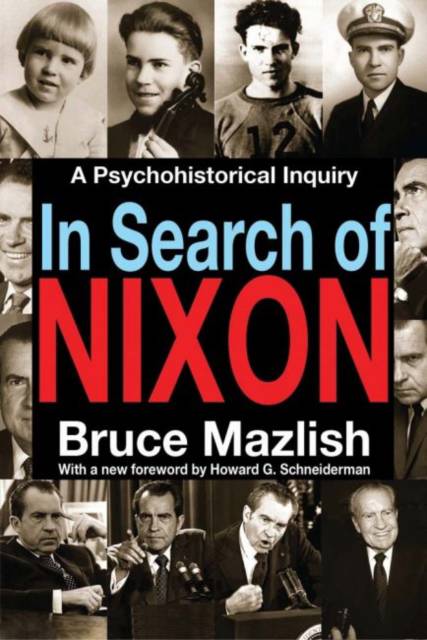
- Retrait gratuit dans votre magasin Club
- 7.000.000 titres dans notre catalogue
- Payer en toute sécurité
- Toujours un magasin près de chez vous
- Retrait gratuit dans votre magasin Club
- 7.000.0000 titres dans notre catalogue
- Payer en toute sécurité
- Toujours un magasin près de chez vous
In Search of Nixon
A Psychohistorical Inquiry
Description
Who was the real Richard Nixon and why did he behave the way he did? In this innovative work, a distinguished historian, trained in psychoanalysis, unravels the riddle of Nixon's singularly opaque political personality. Neither a political biography, nor a clinical psychoanalysis, at the time of its initial publication, In Search of Nixon launched a new genre of scholarship; the "psycho-historical inquiry." Mazlish offers insight into the subtle interplay between Nixon the man and Nixon the public figure.
Why, for example, did Nixon have such personal difficulties in making decisions? Knowing how the young Nixon learned to cope with the problems of his childhood, what can we infer about his unpredictable decisions on Communist China, inflation, and the Supreme Court? Bruce Mazlish applies psychoanalysis to history in order to understand Nixon's behaviour, decisions, and political stance. He explains why Nixon characteristically projected personal crises onto the political arena--as, for example, in the famous Checkers speech, or in the Haynsworth-Carswell affair. And he examines why, conversely, political questions such as pacifism, abortion, and subversion had such a peculiarly personal meaning for him.
Spécifications
Parties prenantes
- Editeur:
Contenu
- Nombre de pages :
- 212
- Langue:
- Anglais
Caractéristiques
- EAN:
- 9781412855648
- Date de parution :
- 30-09-15
- Format:
- Livre broché
- Format numérique:
- Trade paperback (VS)
- Dimensions :
- 140 mm x 213 mm
- Poids :
- 249 g

Les avis
Nous publions uniquement les avis qui respectent les conditions requises. Consultez nos conditions pour les avis.





